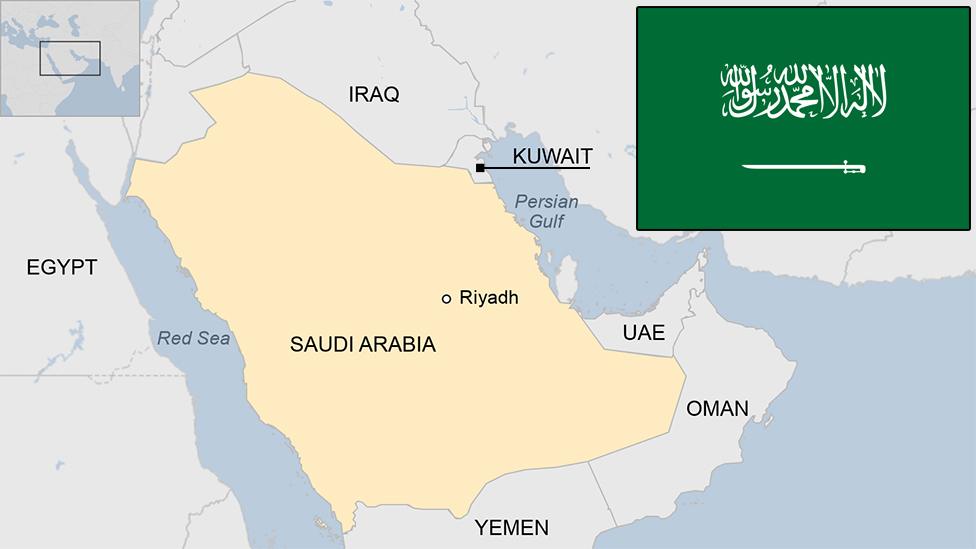Saudi Arabia: How women are making football history
- Published
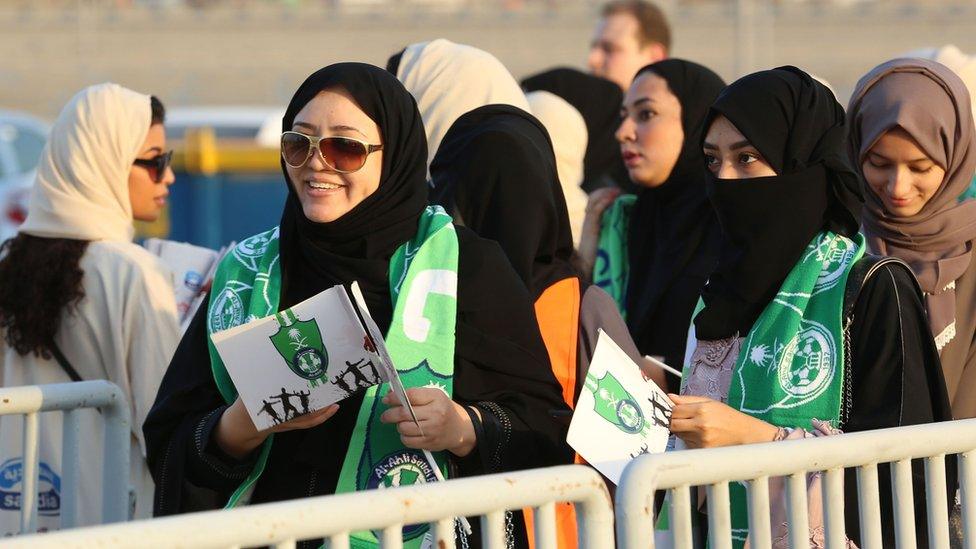
Supporters arrive at the King Abdullah Sports City in Jeddah for Friday's game
Women in Saudi Arabia are making history this month as they are permitted to watch soccer live from the stands for the first time.
They will be present at grounds in the country's three major cities.
First off, female spectators will enter the King Abdullah Sports City in Jeddah on Friday to support their teams as Al-Ahli take on Al-Batin in the Saudi Professional League competition.
Saudi Arabia has been slowly granting additional rights to women in recent months in response to demands by activists - but how significant is this latest move?
Which matches can women watch?
All unaccompanied adult women are permitted to enter stadiums in three major cities - Riyadh, Jeddah and Dammam.
On Thursday 18 January, Al-Ittifaq will be taking on Al-Faisali at the Prince Mohamed Bin Fahd Stadium in the eastern city of Dammam, where women are also welcome to attend.
Separately, Saudi Arabia has this week been hosting its first women's squash tournament.
In November 2017, the country also introduced the women's basketball tournament for universities, which took place in Jeddah and was attended by about 3,000 women.
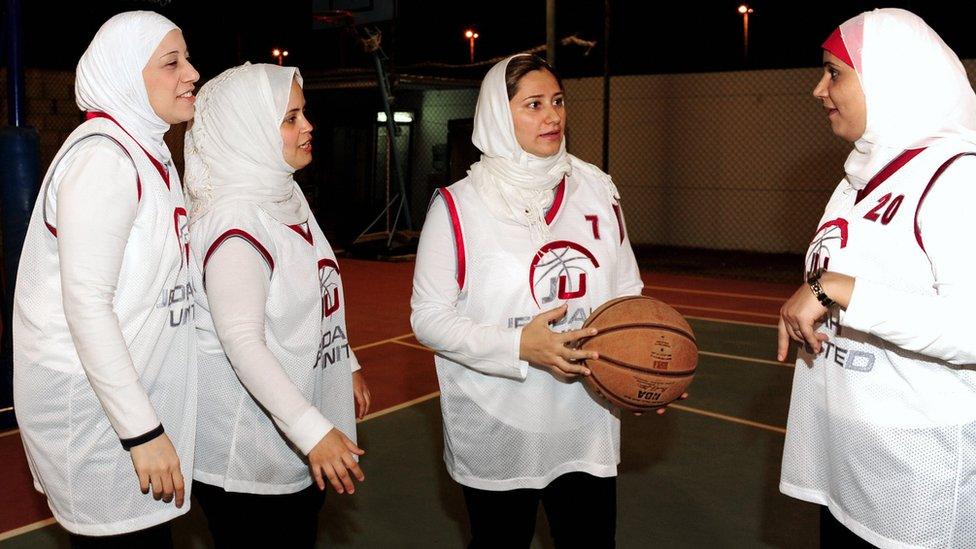
The first Saudi female basketball team, Jeddah United, was founded in 2009
Where will they sit for the football?
Women will view the games from stands in sections of each stadium with specially allocated seating for females and family.
This means that women attending the events will probably sit with children in segregated areas away from the men.
These sections have been made available specifically for women who are not accompanied by a male family member.
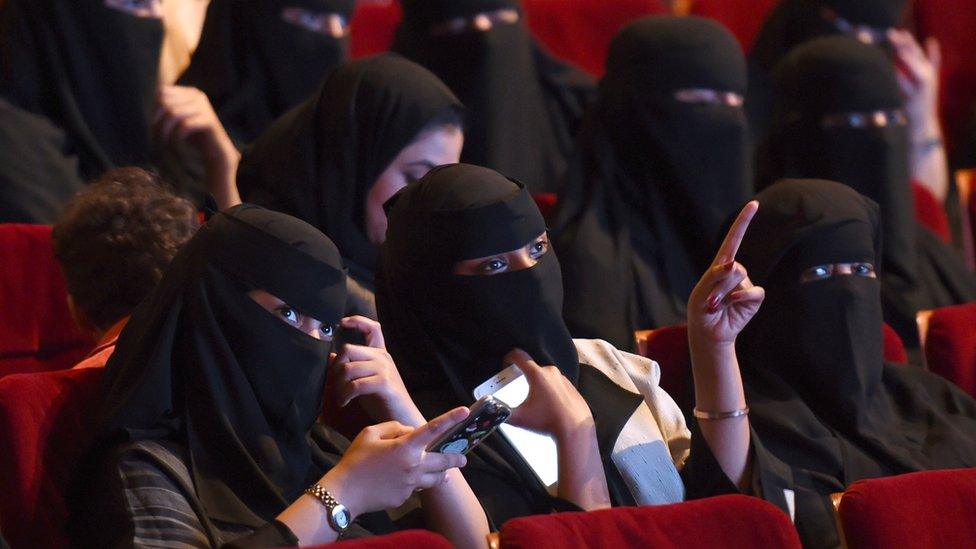
Women must always wear full-length robes known as "abayas" when attending public events
Other areas within the venues, such as cafes and restaurants, have also been adapted to provide separate seating arrangements.
While out in public and at these events, the women must wear loose-fitting, full-length robes known as "abayas", as well as a headscarf if they are Muslim.
Why is this happening now?
The move is part of a social reform plan spearheaded by Saudi Arabia's Crown Prince Mohammed bin Salman, who has pledged to transform the country with the government's Vision 2030 programme.
It is aimed at giving more freedom to Saudi women, who face strict gender segregation rules, and follows the historic lifting of a driving ban in September 2017.
In the same month, women were allowed to participate in Saudi Arabia's National Day celebrations for the first time.
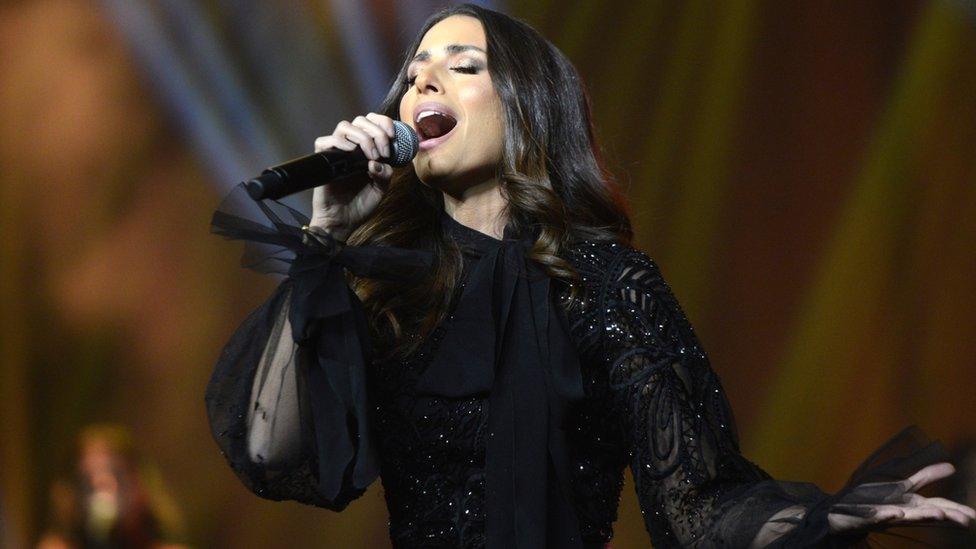
Lebanese singer Hiba Tawaji performs at the first ever female concert in Riyadh
Last year, Saudi Arabia also announced that it was lifting a ban on commercial cinemas that has lasted more than three decades. The first cinemas are expected to open in March this year.
In December, thousands of women cheered and rose in a standing ovation at the first public concert performed by a female singer in the country.
Up until now, such sports and entertainment venues have been men-only areas.
What can't Saudi women do independently?
There are many things that Saudi women are still unable to do without permission from the men in their lives.
These things include, but are not limited to:
Applying for passports
Travelling abroad
Getting married
Opening a bank account
Starting certain businesses
Getting elective surgery
Leaving prison
These restrictions are down to Saudi Arabia's guardianship system, which has aligned the country with a strict form of Sunni Islam known as Wahhabism.
Under the system, every woman must have a male companion with her in public, usually a close family member, who has authority to act on her behalf in these circumstances.
This has helped create one of the most gender unequal countries in the Middle East.
- Published13 February 2017
- Published27 September 2017
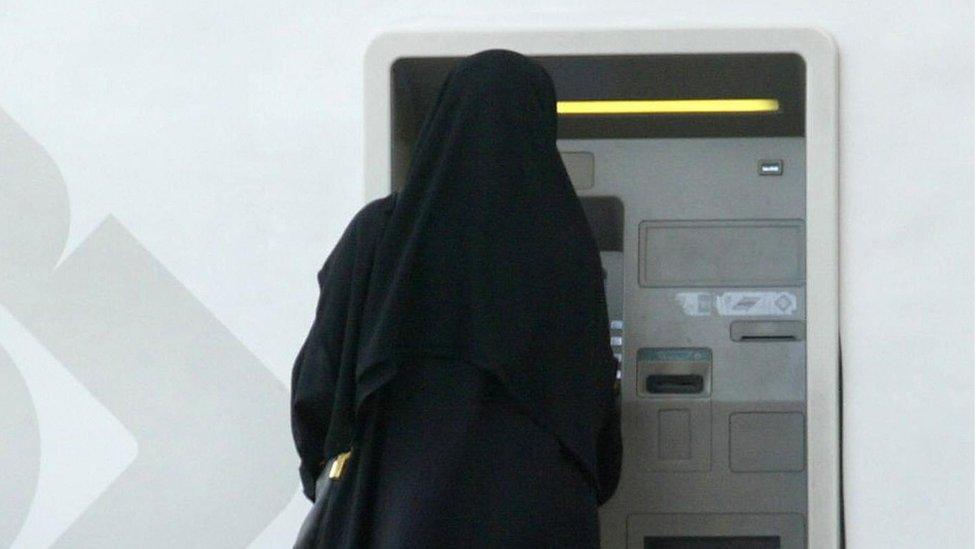
- Published10 December 2015
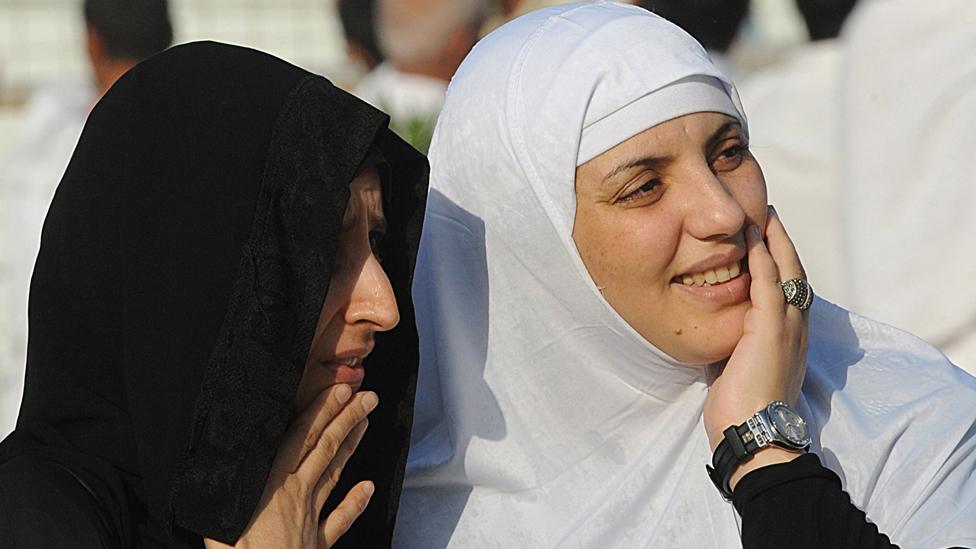
- Published29 August 2023
